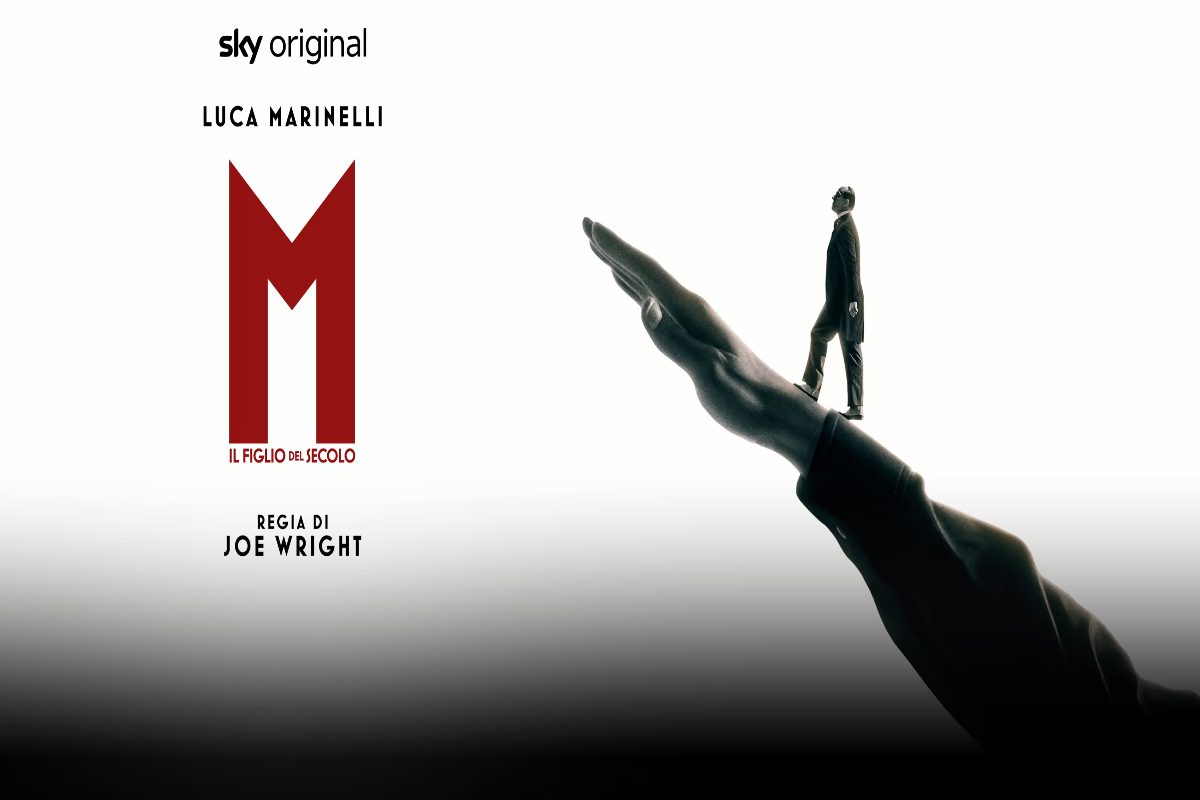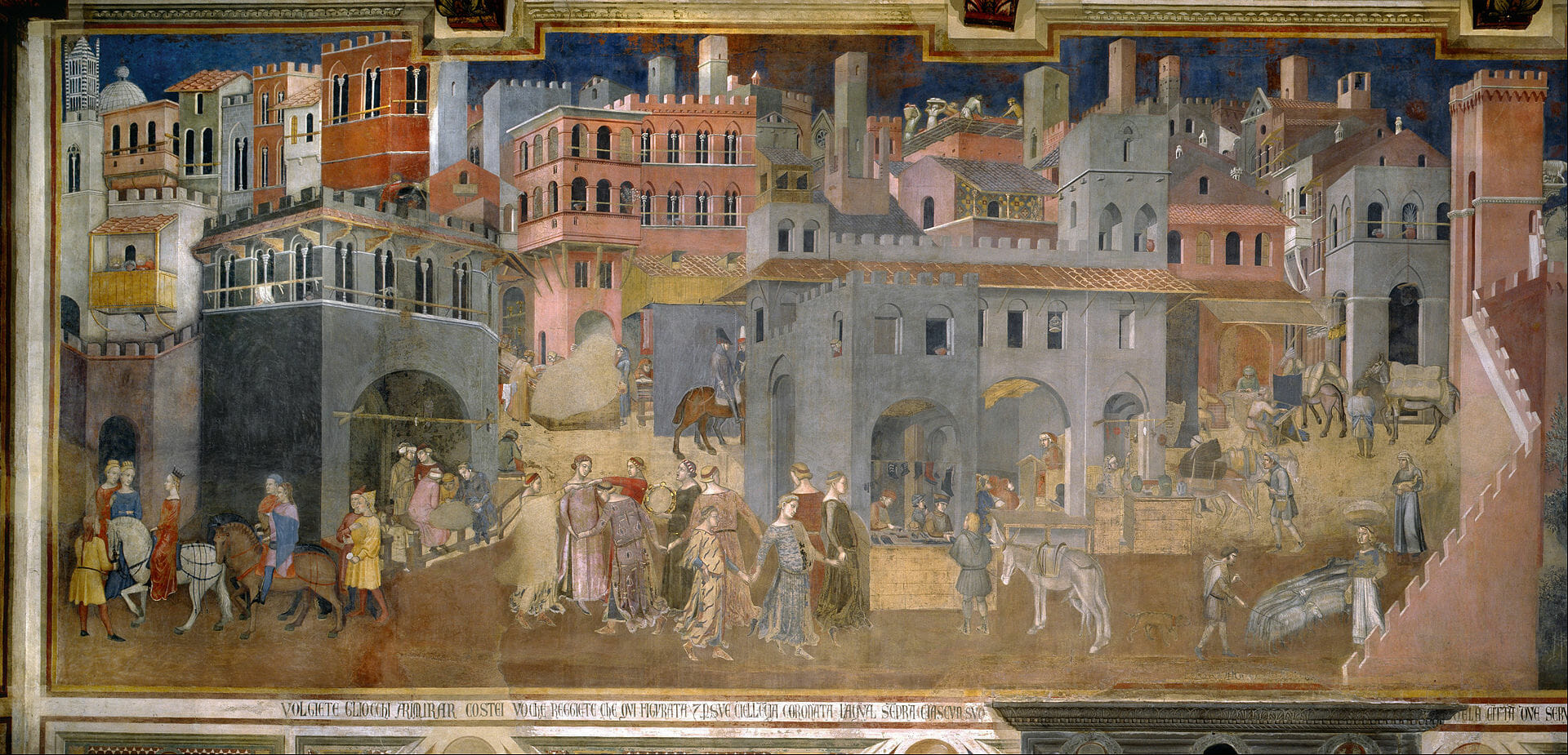
Mussolini: Son of the Century by Joe Wright | 'You'll become fascists too'
Director
Seasons
Runtime
Genre
Music by
By
For 20 years you adored me and feared me, as a god. Then you madly hated me, you desecrated my corpse. Now, tell me, what was the point? Look around you… We’re still here.
Benito Mussolini (played by Luca Marinelli)
Mussolini: Son of the Century is a 2025 Italian-French TV show that recounts the political rise of Benito Mussolini, played by Luca Marinelli, from the foundation of the Fasci Italiani in 1919 to the events that lead to the assassination of the socialist deputy Giacomo Matteotti in 1924. The show, based on the homonymous series of novels by Antonio Scurati, follows not only the political rise of the Duce but also explores his private life, his flaws, his fears, his marital history, and that of his lovers, shedding light on the personal relationships and intrigues that accompanied his path.
Directed by Joe Wright (already the director of other historical projects, such as Pride & Prejudice, Atonement, Anna Karenina, and Darkest Hour) and written by Stefano Bises (author of Gomorrah and The New Pope) and Davide Serino (author of 1922, 1993 and Exterior Night), Mussolini: Son of the Century does not intend to offer a traditional history lesson. On the contrary, Wright throws the viewer directly into the chaos of events, immersing them in a whirlwind of speeches, monologues, and aestheticized acts of violence. The show also focuses on the surgical use of violence by Mussolini’s blackshirts and the rhetoric that fueled his rise.
Son of the Century offers a glimpse of Mussolini’s transformation from journalist and political outsider to charismatic leader capable of mobilizing the masses. An approach that, while simplifying some historical events, intends to stimulate a reflection on the link between ideology, power and truth.
Son of the Century
In History, Adolf Hitler followed Benito Mussolini’s footsteps after appreciating his charisma and methodology. The Nazi salute itself was first adopted by Fascism (the famous “Roman salute,” although the Romans did not salute each other in that way).
Hitler has been spoken of in countless works. American cinema, in particular, has transformed him into an almost comic-book villain. On the contrary, Mussolini has received less attention. In Italian cinema, fascism is often shown indirectly through its victims or those who lived under the regime. Films such as A Special Day by Ettore Scola show its consequences, but not the Duce in action. Now, for the first time, Mussolini: Son of the Century makes him the absolute protagonist.
Why talking only now about Mussolini? The reason is that Fascism, compared to Nazism, has never received unanimous condemnation. In Italy, the fascist past has been reworked ambiguously, with nostalgia that has never completely subsided. But the show brings him back to the scene’s center, showing him in all his nature: a skilled orator but a grotesque opportunist.
The result is a man who embodies the ability to seduce and subjugate the masses, exploiting the anger and sense of bewilderment of a people. Obviously, he is not a hero, but he is not a simple caricature either, even though he was a very caricatural person in reality. Instead, he personifies the mechanism of authoritarianism, which feeds on consensus. Mussolini: Son of the Century asks the viewers to understand its dynamics so they do not repeat themselves. Mussolini is a figure who scares not for his greatness but for his effectiveness.
Much of this result is due to the interpretation of Luca Marinelli, who truly becomes Mussolini, taking on his tics, poses, rhetoric, and weight. Alongside him, other characters contribute to defining his power: Cesare Rossi (Francesco Russo), his ally and political strategist, Margherita Sarfatti (Barbara Chichiarelli), lover and mentor, and the other supporting characters who, with their ambitions and servility, help to build the figure of the Duce. They are the ones who bring out the manipulative Mussolini, skilled at transforming personal relationships into instruments of power.
If there is one aspect that perhaps remains too much in the background, it is the people. Mussolini had an extraordinary ability to be perceived as “one of them,” to speak directly to people, and to manipulate their emotions. Although this element is present in the first episodes, it is lost as the show progresses, leaving the focus of the discussion to be the political machinations.
The Aesthetics of Power
Joe Wright chooses a directorial approach that rejects realism. He did not want to tell the story of the birth of fascism like classic historical TV shows such as The Crown. All to immerse the viewer directly into the chaos of the era. From the first scene, the fourth wall is broken, transforming the audience into a privileged interlocutor of Benito Mussolini. This expedient, already used in House of Cards, gives rhythm and involvement and shows the protagonist’s nature. If the real Mussolini was a skilled manipulator, capable of seducing the masses without ever fully revealing his real intentions, the Mussolini of Son of the Century uses direct dialogue with the viewer to reveal glimpses of his authentic personality. Behind the public mask, the Mussolini-persona, the Mussolini-man emerges, who measures every word in terms of power, with his ambitions and contradictions.
In an interview with The Guardian, Wright said: “What I hoped to do in the show is sometimes allow the audience to be seduced by Mussolini and to get excited by what he’s doing so that the audience can build that empathy and then make something dramatic happen, so as to pull the rug out and say ‘Wait a minute, do you realize what you’re engaging with?’”.
Seamus McGarvey‘s photography, initially dark, grainy, and dominated by reddish tones, progressively brightens with the rise of fascism. This visual choice reinforces the contrast between the poverty of Mussolini’s origins and the power he acquires, up to the buildings flooded with light to symbolize his final megalomania.
The soundtrack, moreover, by Tom Rowlands of the Chemical Brothers, introduces an anachronistic element with its electronic music but is perfectly consistent with the futurist spirit of the time (fascism, after all, at the time, looked to the future itself). Futurism was, after all, a movement whose artistic principles the show integrated into its style. It expressed dynamism, speed, and strength and used the technologies of the time unconventionally.
Futurism had a problematic relationship with fascism: at first close to Mussolini for the common contempt for the past and enthusiasm for modernity, it ended up distancing itself when the regime turned out to be different from what had been announced. The show incorporates this futurist aesthetic in its direction, with its frenetic use of editing and highly symbolic images, and in its sounds: the obsessive, at times tribal, drum and bass evokes the violent and subversive energy that fueled the rise of fascism.
The Cultural Detachment
Was there perhaps a need for a foreign director to tell this very Italian story? The question, although provocative, is not accidental in the context of Mussolini: Son of the Century. Joe Wright, British, has, in fact, a gaze that deliberately places itself outside the Italian national narrative. And he saw this distance as an opportunity:
Being British, Mussolini has always been this kind of strange, almost clown-like figure
Wright’s words to The Hollywood Reporter
His curiosity pushed him to dig beyond the mask, to understand not only the leader but the phenomenon he embodied and that today resonates with disturbing relevance. The director chose not to create a history lesson but a work that was, in his words, “a howl against the current rise of the far-right.” His perspective allows the viewer to grasp the global echo of fascism and its contemporary consequences worldwide.
The choice to shoot entirely in Italian was born from the desire to return the story to its original language, as it was, without filters. Wright initially considered having Mussolini speak in English when directly addressing the viewer. Still, he changed his mind on the day of Giorgia Meloni‘s election. At that moment, he and Luca Marinelli understood that every word had to be understandable to every Italian. This detail shows how much Wright wanted to get as close as possible to the truth of the nature of history, dwelling on how it is possible to arrive at certain terrible events.
Emblematic, in this sense, is one of Mussolini’s lines in Son of the Century: “Let’s make Italy. Great. Again!” This clearly references Donald Trump‘s slogan, which strengthens the link between the past and today’s populism. Wright and the screenwriters initially inserted many more allusions to contemporary politics but then decided to eliminate them, trusting in the audience’s intelligence in drawing their own parallels.
And perhaps only an external and distant gaze could allow such a story. In Italy, the figure of Mussolini is still controversial. Only recently, for example, the municipality of Salò has revoked the dictator’s honorary citizenship, and has nevertheless created some discontent. An Italian director might have felt conditioned by cultural and political pressures, while Wright could deal with the subject with greater freedom. This does not mean that his approach was superficial: his desire to tell the story of Mussolini as a human being was a conscious choice:
I actually think there’s more of a danger if we demonize characters like Mussolini to the point of dehumanizing them. I remember a moment when [U.S. President George W.] Bush was talking about the atrocities at Abu Ghraib, and he said the soldiers that committed them ‘have sickness in their souls.’ He said they’re not people, they’re monsters — and therefore absolved himself and all of us of responsibility. And I think the important thing is for all of us to take responsibility for these characters, to take responsibility for having allowed them to reach these exalted positions of power.
Wright’s words to The Hollywood Reporter
The show’s real target is not Mussolini himself but those who let him grow up in indifference or complacency. It is no coincidence that the last episode ends with one word: “Silence.”
The Weight of Silence
Silence remains after Mussolini: Son of the Century, the silence of those who chose not to react. The Duce conquered power not only with violence or his oratory skill but also thanks to the inaction of those who could have stopped him and did not. His famous speech of January 3, 1925, in which he took political responsibility for the murder of Matteotti without suffering consequences, is the perfect example: a silent parliament, incapable of opposing, allowed a man to rewrite history.
The word silence closes the show and becomes a warning. It reminds us that fascism was not only the result of the will of one man but also the product of a society that, out of fear, convenience, or indifference, let things happen. The absence of opposition, today as then, can be more dangerous than any authoritarian proclamation.
It is also with this concept that Wright wants to shake the public. Mussolini: Son of the Century shows the perverse allure of power and the risk of underestimating it. And, above all, it asks: when does silence become complicity? Dante Alighieri, in the Divine Comedy, reserves a cruel treatment for the “ignavi”, those who in life never took a stand, neither for good nor for evil. Their punishment is eternal: rejected even by Hell, condemned to chase in vain a meaningless banner, incessantly stung by wasps and horseflies. Their punishment is oblivion, the most terrible of sentences. Wright presents the audience with the same crossroads.
Tag
Buy a ☕ for Hypercritic










